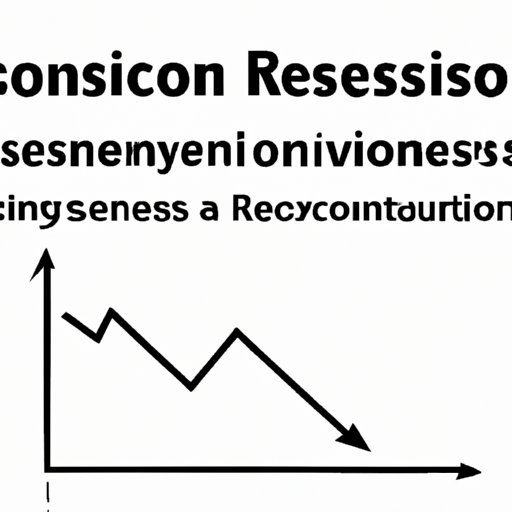Introduction
A recession is a period when there is a significant slowdown in economic growth for a prolonged period. During these difficult times, investors face unprecedented risks and uncertainties. However, understanding what to invest in a recession can help investors make informed decisions that can help protect their portfolios.
In this article, we will discuss various strategies for investing in a recession, including diversification, taking a long-term approach, investing in recession-resistant industries, exploring alternative assets, implementing contrarian investing, and defensive strategies.
The Importance of Diversification in Recession-Proof Investing
Investors can insulate themselves from a recession by diversifying their investment portfolios. Diversification is mixing a wide range of assets across different sectors and markets that perform differently under different economic conditions.
Investors can spread their investments among different types of assets, such as stocks, bonds, real estate, and commodities. They can also diversify their portfolios by investing in different sectors such as healthcare, technology, consumer goods, and utilities. Diversification helps to reduce risk and enhance returns during a recession.
Focus on Long-Term Strategies
Investors often panic and sell their shares during a recession, failing to realize that the market has always bounced back eventually. Investors must learn to adopt a patient approach to investing, with a strong focus on long-term goals.
Investors should approach various investment vehicles like stocks, bonds, mutual funds, or ETFs from a long-term perspective. They should aim to invest in companies with proven track records of performing well during both good and tough economic times.
Recession-Resistant Industries and Sectors
Investing in industries and sectors that have proven to be less vulnerable to recession is an excellent strategy to protect investment portfolios. Healthcare, consumer staples, and utilities are some examples of recession-resistant industries.
Components of these sectors tend to have stable earnings, even in economic slowdowns, as these sectors provide essential products and services that people need regardless of the state of the economy.
Alternative Assets for Stability
Alternative assets like real estate, precious metals, and collectibles offer stability during a recession period. These investments are an excellent choice for those seeking to diversify their portfolio further. They can help investors protect their investment capital and protect against inflation-related market volatility.
To include alternative assets in portfolios, investors need to develop a thorough understanding of the asset and how it behaves in different economic conditions. For instance, investing in real estate requires one to perform comprehensive due diligence to identify high-growth markets and undervalued assets.
Contrarian Investing
Contrarian investing is a strategy that involves taking a position in the areas where others are fleeing from. This strategy requires investors to invest in assets that have a low price relative to their intrinsic value.
Contrarian investing can be a highly risky strategy. However, it can yield high profits when the market rebounds. Investors that adopt this strategy must be willing to put in the time and effort to perform research and analysis adequately.
Defensive Strategies
The defensive strategy involves identifying and investing in companies or funds with low volatility or those that can weather economic downturns better than most. During a recession, investors can consider investing in bonds, government-backed securities, or utility stocks. These investments are known to have a relatively lower level of risk.
Conclusion
Investing in a recession can be daunting, but a well-thought-out strategy can help investors protect their portfolios and potentially earn a return on investment. The strategies we’ve discussed – diversification, long-term investing, investing in recession-resistant industries, exploring alternative assets, contrarian investing, and defensive strategies – can all provide a degree of certainty to investors.
Remember that every situation is unique and may require different strategies. The key is to invest wisely with a long-term mindset.
(Note: Is this article not meeting your expectations? Do you have knowledge or insights to share? Unlock new opportunities and expand your reach by joining our authors team. Click Registration to join us and share your expertise with our readers.)
